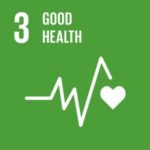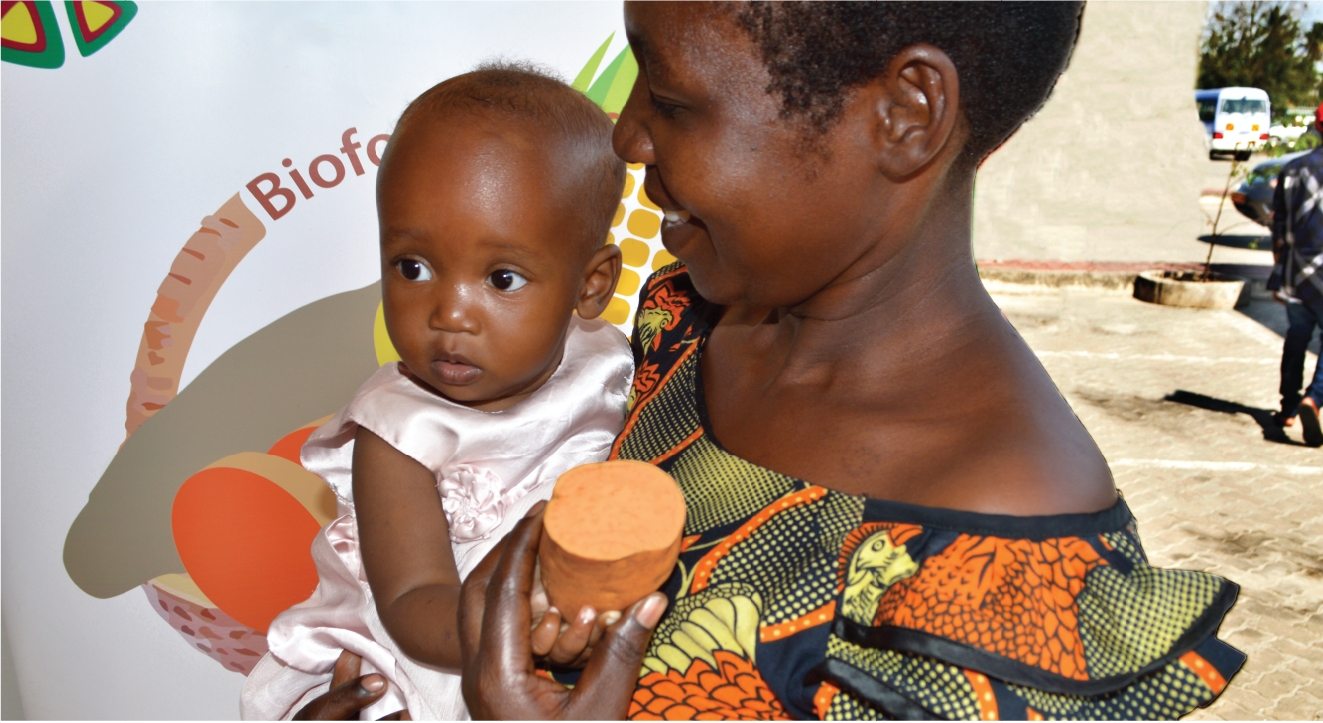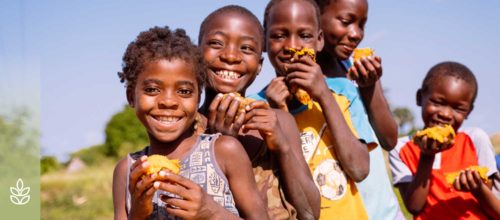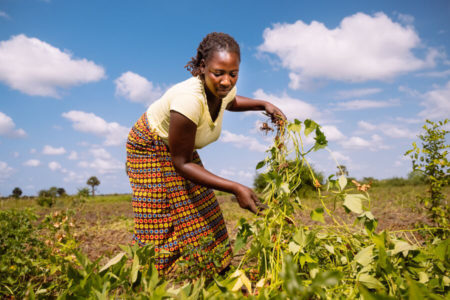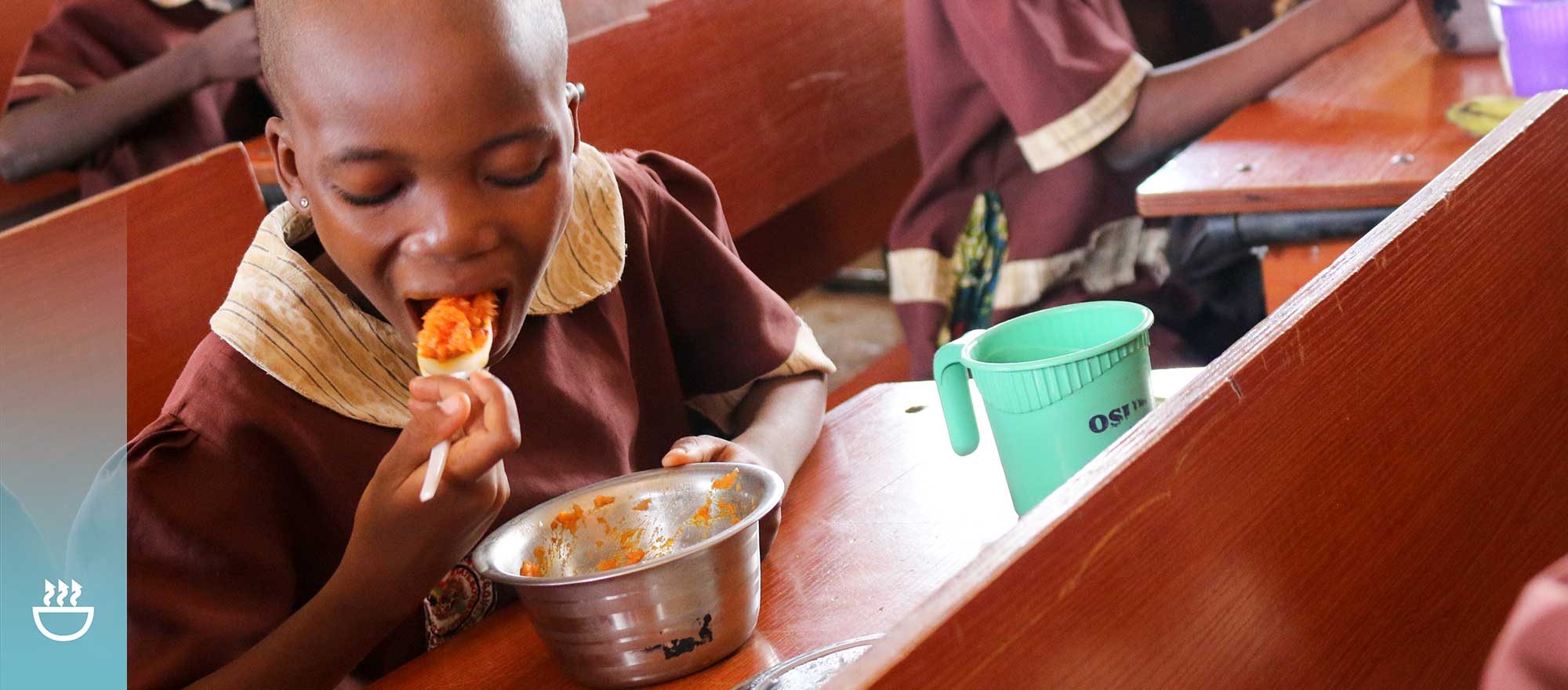
Nearly a quarter of Africans are affected by micronutrient malnutrition, or hidden hunger, which can result in stunting, mental retardation or blindness in children, increasing their risk of death.
Estimates of the long-term cost of malnutrition on gross domestic product on the continent have been put at 2-11%. Yet experience in Nigeria and Tanzania demonstrates the effectiveness of advocacy with targeted research for development interventions. Over three years, nearly 1 million households, (approximately 5 million individuals), were able to introduce nutritious foods into their diets.
Peer reviewed studies have affirmed that biofortified crops—the products of breeding to increase vitamin and mineral density—can contribute to reducing hidden hunger. An initiative of four CGIAR centers in Nigeria and Tanzania, designed to build nutritious food baskets, leveraged growing concern about malnutrition.
From 2015 to 2018, the multi-partner initiative facilitated greater production of four biofortified crops: pro-vitamin A sweetpotato, cassava and maize, and high iron and zinc bean varieties.
As the lead center, the International Potato Center (CIP) applied its decade-long experience promoting consumption of orange-fleshed sweetpotato in Africa to raise awareness, stimulate investment in biofortified crops and strengthen local capacities to breed, disseminate, grow and process them. In addition, seven nutritious varieties of corn, bean and sweetpotato were released, with another six sweetpotato varieties due to be released in Tanzania by 2020.
To create a more conducive environment, CIP led the recruitment and training of government advocates. They in turn helped ensure the prioritization of biofortification in 11 food and nutrition policy documents and its inclusion in new school feeding programs and regional initiatives.
By the end of 2018, governments, businesses and development organizations in Nigeria and Tanzania had invested more than USD 6.5 million in biofortified crops. The initiative also developed the capacity of NGOs, civil society groups and government agencies ranging from Nigeria’s Federal Ministry of Agriculture and Rural Development to the Tanzania Food and Nutrition Centre to promote biofortified crops.
More than 11,400 ‘change agents’ were trained, including agricultural extension agents, nutritionists and researchers. Gift Buduzhi Oguzor, a community nutritionist in Rivers State, Nigeria participated in a 10-day training-of-trainers course in 2017. Within a year, he had trained 275 other facilitators who in turn trained farmers, contributing to the adoption of pro-vitamin A sweetpotato by more than 1,500 households. His advocacy also encouraged local businesses to begin selling and promoting sweetpotato and related products ranging from juices to breads.
More than half the nearly 12,000 advocates trained were women, who continued to promote biofortified crop cultivation and consumption. Because of their role in food marketing activities and influence over family diets, their participation in capacity building and other activities was prioritized. One example is Fortunatha Mmari, Managing Director of AFCO Investment Company Ltd, in Tanzania, which was supported to begin producing and selling flour made from vitamin A-rich orange maize and sweetpotato.
In addition to empowering a cadre of advocates and entrepreneurs like Gift and Fortunatha, and catalyzing the inclusion of biofortified crops in seven Nigerian and Tanzanian programs, the CGIAR centers validated a model that can be used to take biofortified crops to scale in other countries or regions. It is expected to result in significant nutritional and financial gains in the coming years, opening up another role for biofortified crops in helping families earn the resources to purchase more varied and healthy foods.
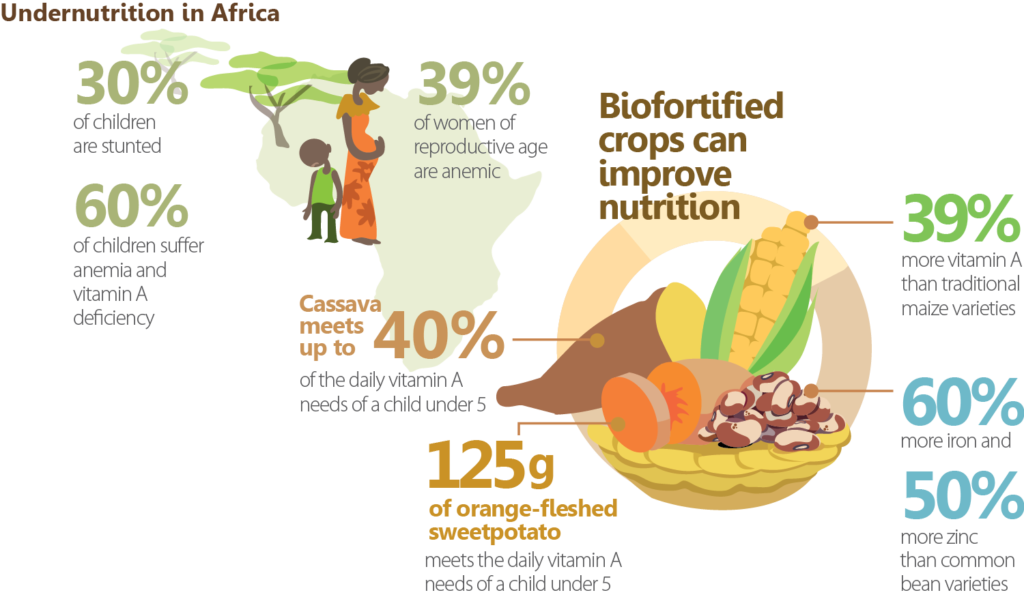
Funder: Bill & Melinda Gates Foundation.
Key partners: African Union Development Agency–New Partnership for Africa’s Development; Forum for Agricultural Research in Africa; Government of Nigeria; Government of Tanzania; HarvestPlus; International Center for Tropical Agriculture; International Maize and Wheat Improvement Center; International Institute of Tropical Agriculture.
Associated CGIAR Research Program: Roots, Tubers and Bananas.

